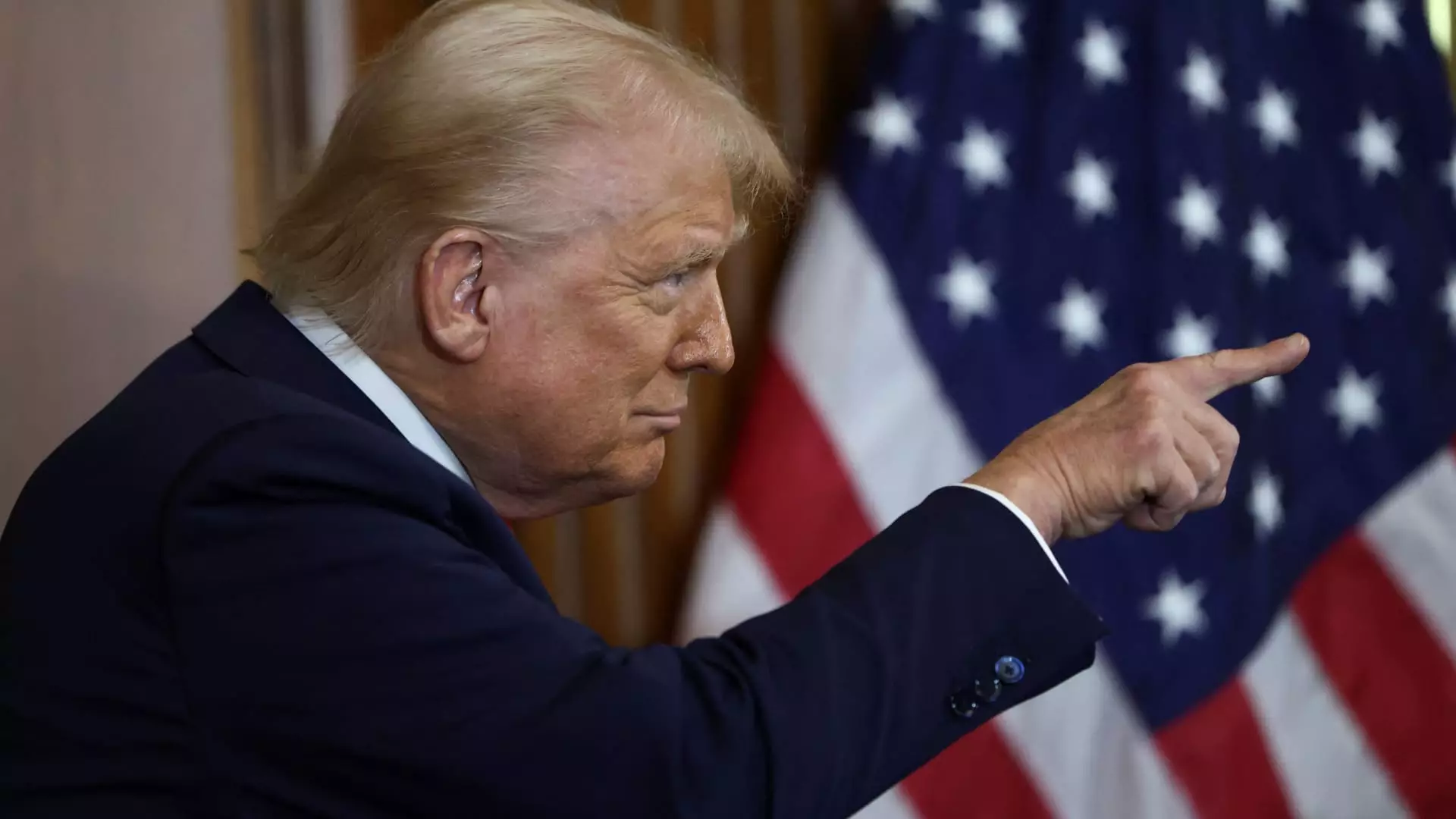In an unexpected turn of events, former President Donald Trump has reignited discussions around tax reform, suggesting a dramatic increase in income tax rates for the wealthiest Americans. This is a remarkable shift for a party that has long positioned itself as the champion of lower taxes and less government intervention. As Republican lawmakers grapple with funding a sprawling spending plan, Trump’s proposal raises eyebrows yet also forces a deeper examination of the fiscal philosophy that has defined modern conservatism. The irony is unmistakable; the very policies that once promised economic growth through decreased taxation are now on the table for reconsideration.
Trump’s phone call with House Speaker Mike Johnson suggests he is eager to steer the party’s fiscal strategy in a more egalitarian direction. By advocating for a return to the top federal income tax rate of 39.6%, he is attempting to signal a commitment to supporting lower- and middle-income families. This shift prompts the question: can a tax hike on the wealthy truly be reconciled with conservative economic doctrine?
Redistributing Wealth: A Necessary Evil?
As America dwells in a state of economic uncertainty exacerbated by global events and domestic inequities, the call to increase taxes on high earners may be seen as both radical and necessary. While many Republicans might recoil at this notion, one cannot ignore that income inequality has reached alarming levels. By reinstating the higher tax rate, we could generate substantial revenue that allows for the preservation of vital social programs like Medicaid. This notion shouldn’t be dismissed lightly but celebrated as a possible turning point in GOP strategies.
Critics may argue that increased taxation on the wealthy would deter investment and hinder economic growth; however, this perspective often fails to address the broader implications of social welfare. When the top earners contribute a fairer share, society benefits as a whole. We could potentially see improved healthcare access and enhanced educational opportunities for low-income families, ultimately fueling a more robust and equitable economy.
The Carried Interest Loophole: A Flawed Benefit?
Another enticing element of Trump’s proposal is the possible closing of the carried interest loophole. This feature has allowed hedge fund managers and private equity partners to pay lower tax rates than everyday workers on what is fundamentally compensation for services rendered. It is a glaring example of a tax system that favors the wealthy disproportionately. Trump’s willingness to address this anomaly indicates a deeper recognition of the need for reform within the current tax framework.
Yet, the prospect of tackling such a sensitive issue creates friction between traditional Republican supporters and progressive voices. For years, Republicans have fought to maintain a less regulated market environment, but if they wish to credibly advocate for lower and middle-income families, this loophole cannot remain untouched.
The Irony of the 2017 Tax Cuts
The Tax Cuts and Jobs Act of 2017—a hallmark achievement of the Trump administration—reduced the federal income tax rate for the wealthiest Americans, sparking a heated debate over its long-term implications for the economy. Initially celebrated by Republican leaders, the act is now back in the spotlight as lawmakers consider reversing aspects of it. This contradictory approach highlights the volatility of party ideology when faced with economic realities.
With a looming fiscal crisis and nearly half of Americans living paycheck to paycheck, the need for redistributive policies cannot be understated. The original promise of tax cuts seems hollow if it does not translate to tangible benefits for the average American.
A Call for Pragmatism Amidst Political Polarization
As Republicans continue to degenerate into intra-party conflicts over tax increases, there lies an opportunity for a more pragmatic approach. In a moment where fiscal responsibility and social equity are not mutually exclusive, Trump’s surprising openness to a tax hike invites dialogue around a more cohesive approach to governance.
Rather than merely adhering to rigid ideological positions, lawmakers must focus on the broader implications of economic policy on the lives of everyday Americans. In an era where common ground seems increasingly elusive, an embrace of pragmatism could redefine the Republican Party’s path forward.
In a political landscape dominated by hyper-partisanship and discontent, perhaps Trump’s proposal serves as a wake-up call, inviting future leaders to rethink their principles—not just for political expediency, but for the betterment of the country as a whole.


Leave a Reply